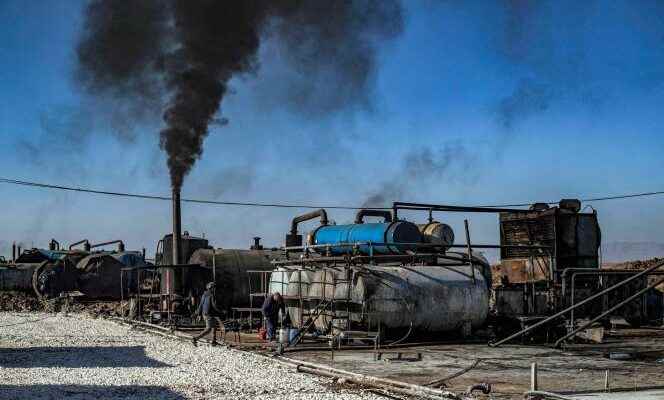An exceptional leave of ten days has been given to Syrian civil servants for the end-of-year holidays. Businesses and industries are reducing their activities. Centers belonging to the Syrian telecommunications company have been temporarily taken out of service. For the past month, fuel shortages have been spreading in the areas under the control of Bashar Al-Assad’s regime and are gradually paralyzing life and the economy.
“The situation in Damascus is now like in the other cities of the country: we have one hour of electricity then five hours of cut. It has become almost impossible to obtain fuel oil for generators or gasoline for vehicles, except at exorbitant prices on the black market, which has led to widespread paralysis. The government says it’s because of US sanctions’said a Damascene who requested anonymity.
“The worst crisis the country has ever known”
After eleven years of war and the imposition of international sanctions, and while the national currency is unscrewing, the state coffers are empty, undermining the functioning of this strategic sector. “This is the worst crisis the country has known, greater than during the years of open conflict, when there were informal supply chains. Either there is no more foreign currency to pay for supplies of oil from Iran and gas from Algeria, or the authorities are unwilling to spend their foreign currency in order to stem the collapse of the Syrian pound”, which reached a historic low of 6,000 pounds to the dollar on the black market against 47 pounds to the dollar before 2011, comments the Franco-Syrian economist Samir Aïta.
Before the outbreak of the war, Syria exported part of its reserves, estimated at 2.5 billion barrels of oil. Most of the hydrocarbon deposits are in areas that are now beyond the control of Damascus, in the east of the country, administered by Kurdish forces. Supplies from this region are erratic. Production in the deposits in the center of the country, under regime control, only satisfies a tenth of demand, estimated at 200,000 barrels per day. Most of the oil is imported from Iran, which renewed a line of credit to the Syrian regime for this purpose in May.
Iranian supplies, however, fell from 6.76 million barrels per month in the first quarter of 2022 to 2.63 million in the third quarter, according to the independent site Tanker Trackers. The authorities in Damascus have announced that these supplies have been suspended since September. The website TankerTrackers, however, observed imports of about 71,244 barrels of oil per day from Iran in the fourth quarter, levels well below demand. “The Syrian government is unable to finance fuel supplies, and Iran is not about to continue financing it on credit forever”says Karam Shaar, an economist at the Observatory of Political and Economic Networks.
You have 63.97% of this article left to read. The following is for subscribers only.
